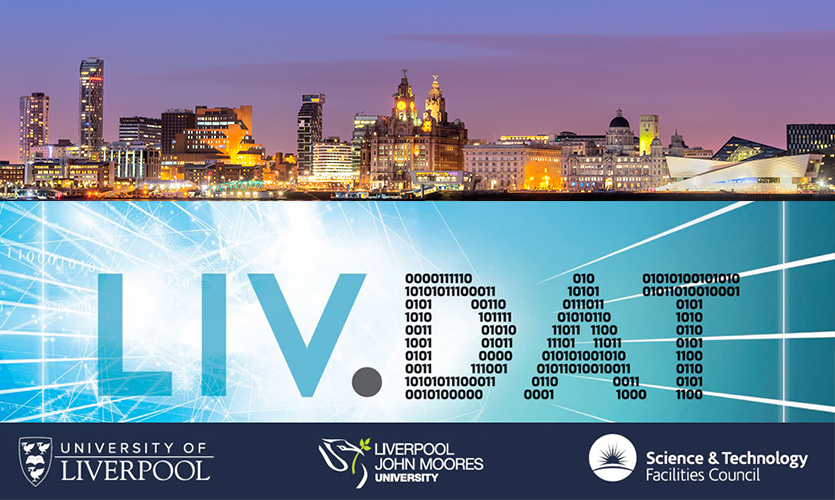LJMU to benefit from £1million ’Big Data’ training centre

Liverpool John Moores University and the University of Liverpool and have been awarded £1m for a new Centre for Doctoral Training (CDT) in data intensive science (LIVDAT).
The award is part of £10million investment from the Science and Technology Facilities Council (STFC) to support eight new data intensive science CDTs across the UK.
The constant advancement of computer technology has had a profound impact on science and industry, making possible some of the most important discoveries in recent years. Thanks to increasingly powerful technology, researchers can gather, store and utilise vast amounts of data – but to make sense of this data, many more expert scientists are needed to ensure the UK takes full advantage.
LIVDAT will address this skills need by supporting 20 PhD students, who will be trained to analyse data from astrophysics, accelerator science, nuclear or particle physics research, as well as to problems posed by industry and other organisations.
 Professor Chris Collins, Head of LJMU’s Astrophysics Research Institute said: "This new centre will place Liverpool at the fore of developing new techniques and algorithms to meet the challenge of large and complex datasets in the 21st century. With our complementary expertise in big data and astrophysics, we are confident that this new training initiative will unlock new collaborative research into areas such as dark matter and understanding dark energy."
Professor Chris Collins, Head of LJMU’s Astrophysics Research Institute said: "This new centre will place Liverpool at the fore of developing new techniques and algorithms to meet the challenge of large and complex datasets in the 21st century. With our complementary expertise in big data and astrophysics, we are confident that this new training initiative will unlock new collaborative research into areas such as dark matter and understanding dark energy."
Professor Carsten P Welsch, Head of the University of Liverpool’s Physics Department and Director of the CDT, said: “Both the University of Liverpool and Liverpool John Moores University have a long-standing track record in the design and construction of advanced scientific instruments. Both have also developed strong links to many international research laboratories. The PhD students in this new centre will now benefit from this unique expertise and get trained in an area of research that is highly important for both, fundamental science and industry applications.”
Data-intensive science utilises sophisticated computational, statistical and programming techniques, including artificial intelligence and machine learning to extract insights from huge datasets to make new discoveries.
The CDTs will offer a comprehensive training in data intensive science through cutting edge research projects and a targeted academic training programme, complemented by secondments to national and international partners.
LIVDAT will also capitalise on the Liverpool Big Data Network (LBDN), an initiative set up in 2013 in response to Big Data being one of the 'Eight Great technologies'. As well as providing a focus for relevant existing MSc provision, LBDN now comprises some 100 academics drawn from many different academic disciplines and united by a common interest in developing and applying Big Data.
Learn more about LIVDAT at: http://www.livdat.org


